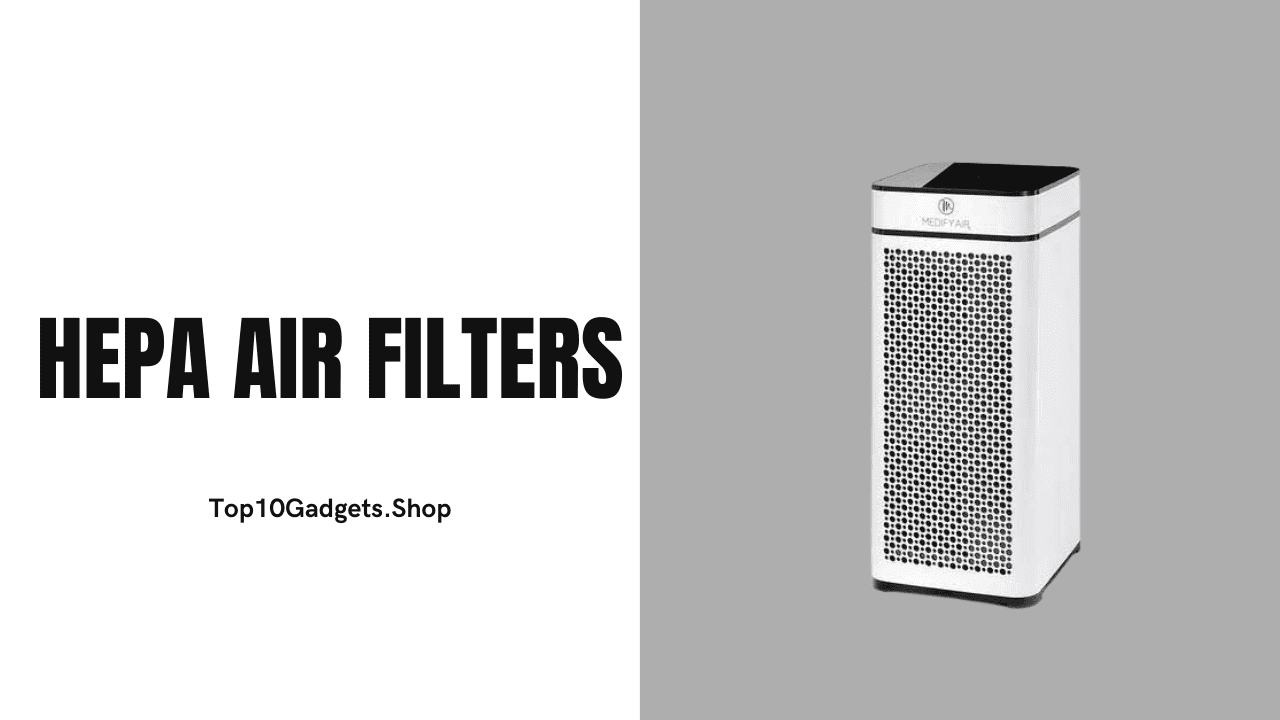HEPA filters purify air by capturing fine particles. HEPA filters, in order to be categorized as HEPA filters, are required to achieve the most stringent requirements, i.e. to remove 99.97% of particles down to 0.3 microns. Buying a product labelled HEPA means it meets HEPA filter standards as far as manufacturing, testing, certification, and labeling goes.
How HEPA Air Filters Work?
Pollen, pet dander, dust mites, and even tobacco smoke are captured by the fine mesh of a HEPA filter when it is forced through the filter. Three different mechanisms are used to trap particles using the mesh filter, which is made of exceptionally fine glass fiber:
Interception
Interception in football occurs when particles are captured in the airflow as they pass through the air filtration system. Filters trap particles within one radius of their fibers when they come within one radius of the filter.
Impaction
It occurs when airborne particles that are large and inert cannot handle changes in airflow, so they crash into the filter fiber and become embedded.
Diffusion
It is the process through which microscopic particles interact with surrounding molecules in an unpredictable and zigzag way. When this occurs, particles’ movement through the HEPA filter is slowed down, which increases the likelihood of them being captured by interception or impaction.
Why Use HEPA Filtration?
Experts in allergy and asthma treatment highly recommend HEPA filters as air purification systems. People with allergies may find relief with an air cleaner with a HEPA filter, states the American College of Allergy, Asthma and Immunology. Scientific studies have proven that air filtration reduces these airborne allergens. It is especially useful during allergy season to keep out particles that have made it past the heating and cooling system filters. HEPA filters are often used in addition to whole-house filtration systems.
What HEPA Air Filters Remove?
HEPA filters are extremely efficient at trapping as small as 0.3 micrometers-in-diameter airborne particles, such as:
- Dust from lint
- Dander from pets
- Microspores
- Isotopes
- Mites that feed on dust
- Particles of fine dust
- Viruses and bacteria
Standards and Requirements
The US Department of Energy sets guidelines for the removal of particles as small as 0.3 microns through HEPA filters. While MERV and FPR are used for furnaces and air conditioners, the HEPA rating is used only for air purifiers.
How Much Can HEPA Filters Help?
Keeping your home clean with a HEPA filter can help remove most airborne particles that could aggravate allergies. Sadly, your home is not just filled with airborne particles. Besides the ones you see under your rugs, bed spreads, and drapes, there are many more that reside on your countertops and tabletops. As a result, these areas need to be kept clean. Furthermore, eliminating allergens and irritants from their source is important. As an example, if you don’t smoke, you can keep tobacco smoke at bay in your home very effectively.
When to Replace your HEPA Air Filter?
The performance of HEPA filters over time is better than those of most other air and water filters. They tend to get better with age and dirt, making it hard to determine whether they should be replaced. Keeping a filter clean will help prevent microorganisms from reproducing within it. Even though the manufacturers recommend changing HEPA filters every 6 months, following the manufacturers’ suggestions is the most reliable way to make sure your filter is performing at its best.
Pros and Cons
Pros
- Air purifiers are the best way to relieve allergies.
- HEPA filters capture airborne particles and prevent them from leaking back into the air.
- As the filter gets dirty, HEPA efficiency increases. With HEPA air filters, the dirtier they get, the more efficient they become, unlike traditional air filters.
- Portable and small, HEPA filtration does not take up a lot of space in your house and can be easily moved from room to room. Clean your air without affecting your heating and cooling systems, a good option for apartments
Cons
- Air that can be treated by HEPA filters is limited. One HEPA filter usually cleans the air in one room, and is not a whole-house solution. The product description should tell you how many square feet the product can handle.
- The words “HEPA-like” and “HEPA-type” are used by some manufacturers in order to make their product sound as powerful as a HEPA filter. Using similar materials or removing large numbers of particles, the products may not meet HEPA certification requirements and not perform to the same standard as certified products. You should choose filters that are stated to have a 99.7% cleanability rate at 0.3 microns on the label.
- As a mechanical filter, a HEPA filter can create some noise during operation thanks to the moving parts.
- Once trapped in a filter, microorganisms reproduce or breed. Routine filter replacement can reduce the growth of microorganisms.
Conclusion
High-efficiency HEPA filters are capable of capturing at least 99.5% of airborne contaminants. Pollen, viruses, bacteria, mold, viruses and bacteria can be captured by these filters, made from plastic (PP+PET) or fiberglass. In addition, diffusion makes them highly effective at trapping nanoparticles.
